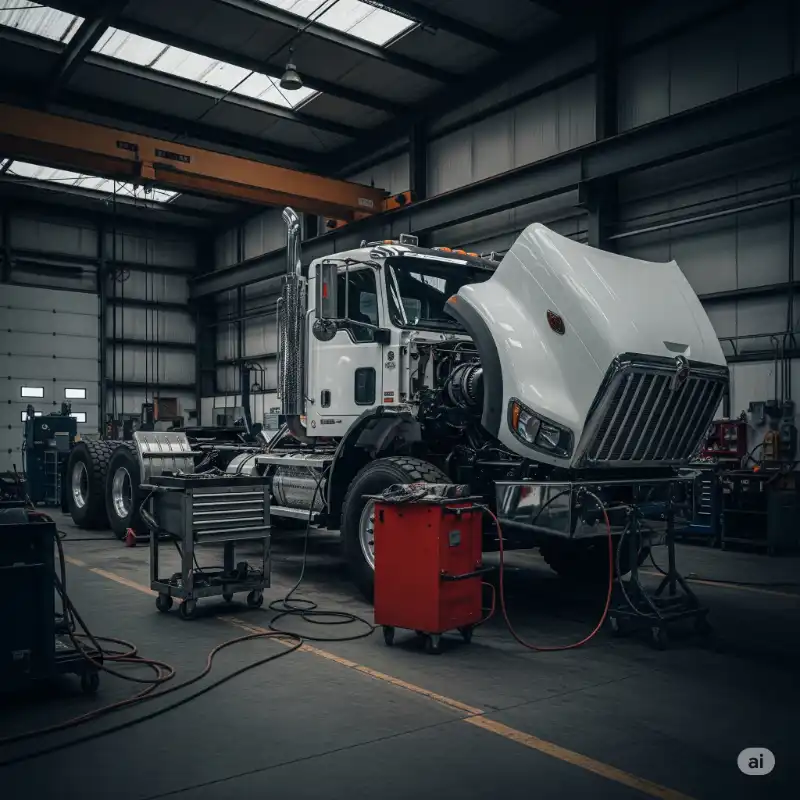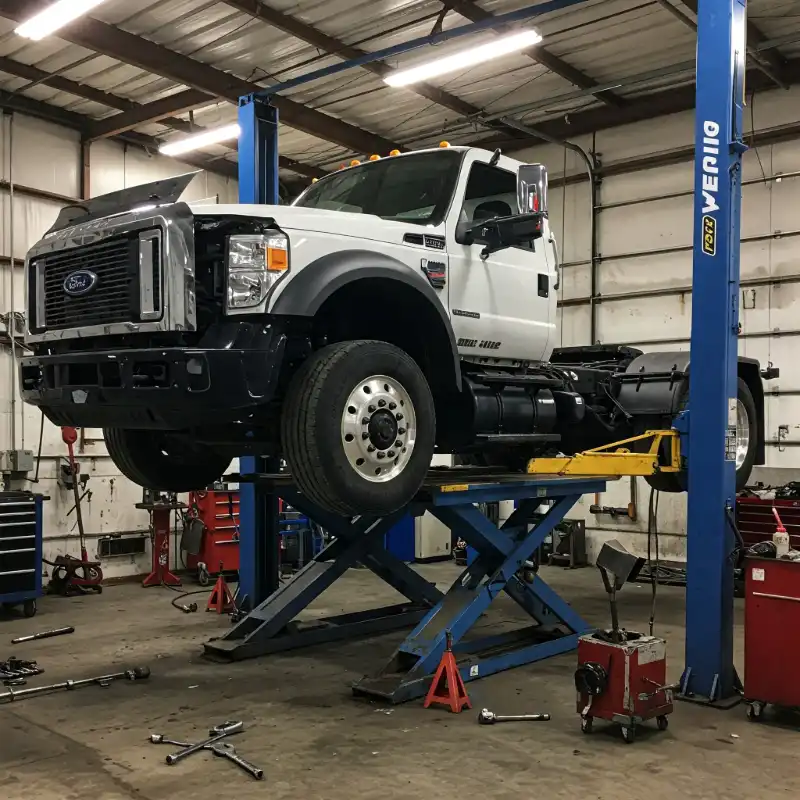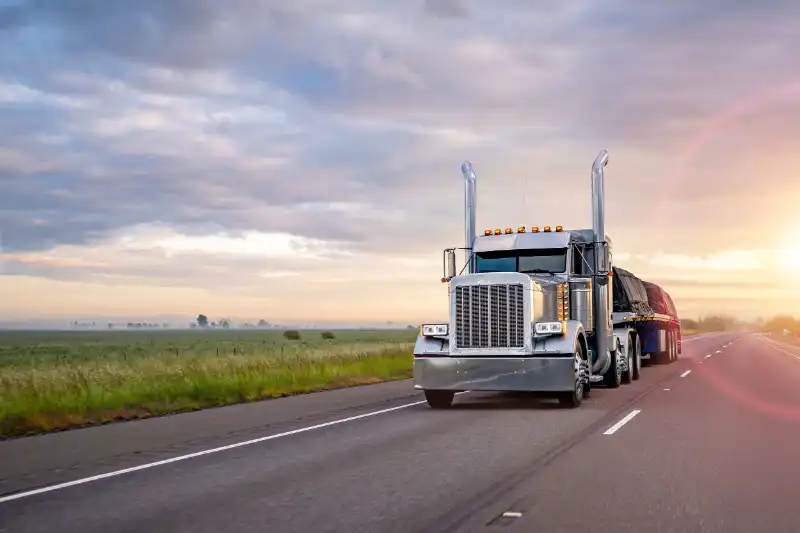
If you run a grocery fleet, we don’t need to tell you the challenges you face on a daily basis. Anywhere from truck components failing to malfunctioning reefer units, there’s a lot that can go wrong. And when they do, this can have a domino effect of disaster.
But don’t worry about all that; we’ve got you covered. Today, we’ll discuss common problems that impact grocery fleets and what you can do to solve them.
Refrigeration Unit Failures
Your refrigeration units are indispensable to your work and, because of this, need to be kept in optimal condition at all times. That’s easier said than done, of course, as they can malfunction and cause havoc on your operations. Spoiled goods, missed revenue, unhappy customers, and reputational damage are all consequences of their failure.
Causes
Refrigeration units can fail for several reasons:
- Compressor malfunctions: The compressor is the heart of the refrigeration unit, and if it breaks down, the entire system will lose its cooling ability.
- Leaks in refrigerant lines: Refrigerants are vital to keeping temperatures low. If there's a leak, the unit will struggle to maintain a constant temperature.
- Electrical issues: Loose connections or faulty wiring can cause intermittent cooling, which is highly problematic for temperature-sensitive cargo.
Solutions
- Routine inspections: Ensure preventive maintenance includes regular checks on the compressor, refrigerant levels, and electrical systems. A basic check every 90 days can prevent many costly breakdowns.
- Invest in backup sensors: Install temperature sensors that alert drivers and fleet managers if the temperature fluctuates beyond the desired range. This allows for swift action before spoilage occurs.
Tire Problems and Blowouts
Tire problems are problems in any fleet, but they're even more so in grocery vehicles. They’re constantly on the move, transporting heavy loads, and often experience city driving conditions. This can put excess stress on the tires, leaving them susceptible to blowouts and damage.
Causes
- Under-inflation: Under-inflated tires can overheat and cause blowouts, especially during long hauls or hot climates.
- Uneven wear: Grocery trucks tend to carry heavy loads on uneven terrain, leading to uneven tire wear.
- Poor tire maintenance: Failing to rotate tires regularly or check tread depth can drastically shorten a tire’s lifespan.
Solutions
- Use tire pressure monitoring systems (TPMS): These systems alert your drivers when tire pressure is too low, reducing the risk of blowouts.
- Schedule regular tire rotations and inspections: To ensure even wear, aim to rotate tires every 6,000-8,000 miles. Professional heavy-duty mechanics can carry this out for the best results.
Brake System Failures
Brake failure not only puts your drivers and other road users at risk, but also your cargo. If you’re operating in urban areas, consistent braking will increase wear on the system. Keeping them in peak condition should always be a priority.
Causes
- Worn brake shoes: Frequent braking in traffic can cause brake shoes to wear down quickly, reducing stopping power.
- Air system malfunctions: Air brakes, common in heavy-duty trucks, can suffer from leaks in air hoses or malfunctioning compressors, leading to reduced braking efficiency.
- Brake fluid contamination: Moisture can enter the brake fluid, causing it to lose its effectiveness.
Solutions
- Regular brake inspections: Make sure your maintenance schedule includes regular brake system checks. Inspect brake shoes, drums, and air hoses for any signs of wear.
- Air dryer maintenance: Check the air dryers in your brake system regularly, especially in humid environments, to prevent moisture buildup.
Load Imbalance Issues
Proper loading is crucial for grocery fleets. If trucks aren’t loaded correctly, they can lead to weight imbalances, which can cause handling issues, excessive and uneven tire wear, and, in extreme cases, accidents. If your cargo isn't secured correctly, it can also lead to damaged produce.
Causes
- Poor load distribution: If goods are stacked improperly, it can cause one side of the truck to carry more weight, leading to handling difficulties and even rollovers.
- Improper securing of goods: If cargo isn’t secured properly, it can shift during transit, affecting the truck’s balance and causing load shifts.
Solutions
- Train loading personnel: Ensure that those loading the trucks are trained in proper load balancing techniques. They should distribute weight evenly across the axles and ensure goods are secured.
- Use load weight sensors: These sensors can monitor how weight is distributed and alert the driver if there's an imbalance, allowing for adjustments before the truck hits the road.
Fuel Efficiency Concerns
Have you seen the price of fuel recently? Now more than ever, getting the most bang for your buck at the pump is crucial. Poor fuel efficiency can quickly decimate your budget and increase operational costs.
Causes
- Excessive idling: Idling wastes fuel, and in grocery fleets, it's common for drivers to leave trucks running while waiting at docks.
- Poor driving habits: Sudden acceleration and harsh braking can drastically reduce fuel efficiency.
- Underperforming engines: Lack of maintenance, dirty air filters, or clogged fuel injectors can reduce engine efficiency.
Solutions
- Implement anti-idling policies: Encourage drivers to turn off the engine when stopped for extended periods.
- Driver training programs: Train drivers on fuel-efficient driving techniques like smooth acceleration and proper use of cruise control.
- Regular engine tune-ups: Keep engines in top shape by following a strict maintenance schedule that includes cleaning or replacing air filters and fuel injectors.
Final Thoughts
Managing a grocery fleet comes with its own set of unique challenges, but with the right preventive maintenance strategies in place, you can minimize downtime and keep deliveries on time. Your fleet can operate more efficiently and cost-effectively by addressing common issues such as refrigeration failures, tire blowouts, and brake malfunctions.
Learn more about optimizing your operations with our article about 7 costly mistakes in grocery fleets.
More Articles


Why Investing in Quality Parts Saves Money on Heavy-Duty Repairs
Why Investing in Quality Parts Saves Money on Heavy-Duty Repairs
Discover why using quality parts for heavy-duty trucks reduces repair costs, improves performance, and prevents costly downtime—especially under Texas road conditions.


Why Is Summer Maintenance Crucial for Grocery Delivery Fleets?
Why Is Summer Maintenance Crucial for Grocery Delivery Fleets?
Don’t let the Texas heat take down your fleet. Discover how summer maintenance protects grocery delivery trucks, keeps cargo fresh, and ensures reliability all season long.


Top 7 Ways to Keep Your Grocery Fleet Running Smoothly This Summer
Top 7 Ways to Keep Your Grocery Fleet Running Smoothly This Summer
Prevent breakdowns and keep your grocery fleet running efficiently in summer. Learn how to protect engines, tires, refrigeration units, and drivers from extreme heat.
